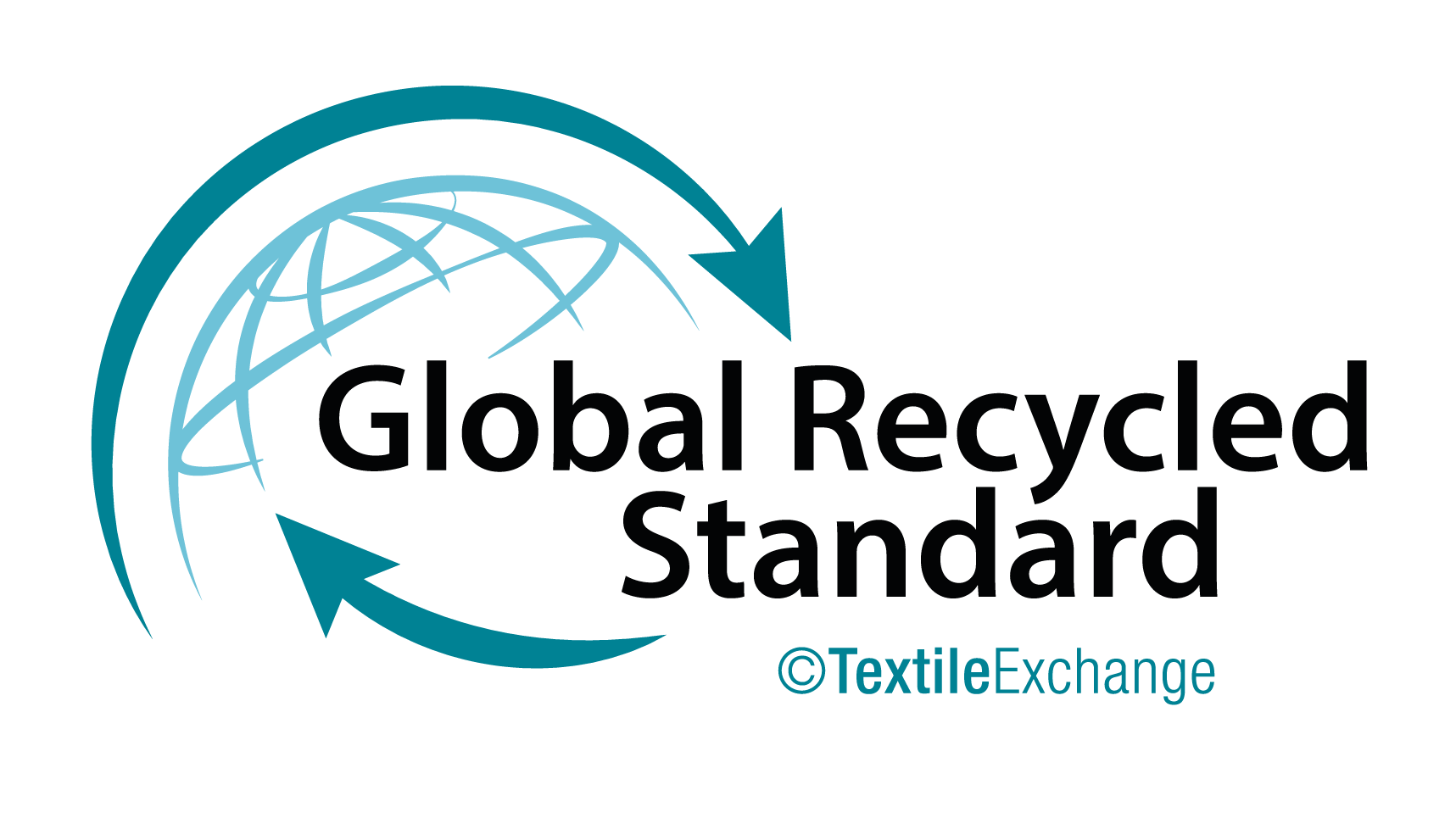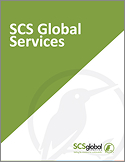
- Home /
- Services /
- Apparel and Textiles /
- Global Recycled Standard

EBC Business Group
What is The Global Recycled Standard?
The Global Recycled Standard (GRS) is a voluntary product standard for tracking and verifying the content of recycled materials in a final product. The standard applies to the full supply chain and addresses traceability, environmental principles, social requirements, chemical content and labeling. GRS covers processing, manufacturing, packaging, labeling, trading and distribution of all products made with a minimum of 20% recycled material. It also sets requirements for third-party certification of recycled content, chain of custody, social and environmental practices, and chemical restrictions.
The standard supports companies looking to verify the recycled content of their products as well as responsible social, environmental and chemical practices in the production of these products. Although the GRS is owned by Textile Exchange, the range of products is not limited to textiles and can include any type of product containing recycled content materials.
The desired effect of GRS is to provide brands with a tool for more accurate labeling, to encourage innovation in the use of reclaimed materials, to establish more transparency in the supply chain, and to provide better information to consumers.
The goal of GRS is to increase use of Recycled materials in products and reduce or eliminate the harm caused by its production.
Why Choose SCS?
SCS Global Services is a globally recognized, third-party certifier of recycled content claims. SCS Global Services has been a global leader in third-party environmental and sustainability verification, certification, auditing, testing, and standards development for more than three decades.
- Eligibility
- Benefits
- Process
- FAQs
- Documents
Companies in ginning, spinning, weaving and knitting, dyeing and printing, and cut and sew are eligible for certification.
Certification Features
- Recycled Polymer Materials - Contains a minimum of 20% recycled content
- Ethical - Avoids questionable or unethical sources
- Labor Protections - Ensures that workers are treated fairly according to internationally recognized (ILO) labor standards
- Supply Chain Management - Introduces supply chain risk management tools to improve sourcing strategies and prevent destructive environmental practices
- Environmental Impact Assessment - examines the environmental impacts associated with product manufacturing
- Chain of Custody – Transaction certificates follow the material through the supply chain
Complementary SCS Services
SCS provides a full spectrum of environmental and sustainability certification services. Complementary services include: Recycled Claim Standard, Certified Responsible Source™ Textiles, SCS Recycled Content Certification, and Alliance for Water Stewardship Certification.
Certification for GRS benefits you, your customers, and other stakeholders, by demonstrating:
- Alignment of definitions across multiple applications.
- Tracking and tracing Recycled input materials.
- Providing customers (both brands and consumers) with a tool to make informed decisions.
- Reducing harmful impact of production to people and the environment.
- Providing assurance that materials in the final product are actually Recycled and processed more sustainably.
- Driving innovation in addressing quality issues in the use of Recycled materials.
- Apply for Certification
Complete and submit an SCS Application Form. SCS will scope the project based on information provided in the application and will prepare a proposal for your approval with suggested timeline and quote. Once you approve the proposal, you will sign a Work Order and an account manager will be assigned to guide you through the certification process. - Data Collection
An SCS technical coordinator will help you assemble preliminary data which will be submitted to SCS. SCS will review the product data, corporate documentation, manufacturing process, product formulation, testing, etc, and assess your readiness for an audit. - Audit
SCS will conduct the certification audit, which will include an on-site inspection of your facility. The auditor will interact with your technical staff to clarify and obtain any additional information that might prove essential to reaching an accurate supportable evaluation. - Draft Assessment Report
The auditor will write a draft assessment report that details the findings of the audit, which will include data analysis, non-conformities, and opportunities for improvement. - Internal peer review
Another qualified SCS auditor will review the report, making any necessary corrections or changes before the report is sent to the client. - Corrective Actions
You will need to respond to any non-conformities with a corrective action plan. You may also make comments and responses to the information contained in the report and the conclusions drawn by the auditor. - Make Certification Decision
SCS will conduct a final technical review of the assessment report and make the final certification decision. SCS can also provide client marketing support. - Receive Certificate
If certification is granted, SCS will issue the certificate and final report to your facility or operation. Once certified, your company will receive a certificate and logos and is listed in the Green Products Certificate Database on the SCS website. 8. Certification Maintenance and Renewal SCS requires annual surveillance audits to maintain your certification.
Who is allowed to use the GRS logo?
To make product-related claims on final products intended for consumer sale, certification is required. Claims by certified organizations can only be made by organizations that hold a valid scope certificate to the applicable Standard(s). If your company operates at any point within the supply chain between the farm or material recycler and the brand, certification is required to make claims. A retailer selling their own brand or private label products also requires certification to make product-related claims. For GRS certified products, the recycled content must be at or above 50%.
Source: TE-301-V1.3-Standards-Claims-Policy, Section D: Informational Statements, Figure B3.1.2
What is the minimum percentage of recycled material required in a product to qualify for GRS product-specific labeling?
Products must contain at least 50% recycled content to be eligible for product-specific labeling under the GRS.
What is the difference between “GRS” and “GRS (No Label)”?
- GRS is used for ≥ 50% certified content.
- GRS (No Label) is used for 20% ≤ x < 50% certified content
- Source: ASR-103-V3.1-Policy-for-Scope-Certificates
We are aiming to meet the Amazon Climate Pledge Friendly criteria. Which Textile Exchange Standards are eligible?
- Global Recycled Standard (GRS): A product must contain at least 50% certified GRS material to qualify for Amazon Climate Pledge Friendly.
- Recycled Claim Standard 100 (RCS 100): A product must contain at least 50% certified RCS100 material to qualify for Climate Pledge Friendly.
- Recycled Claim Standard (RCS Blended): Climate Pledge Friendly requires the product contain at least 50% certified RCS Blended material by weight.
- Responsible Wool Standard (RWS): A product must contain at least 50% certified RWS material to qualify for Climate Pledge Friendly.
- Source: Amazon Climate Pledge Friendly criteria
Can my company use the GRS logo if the packaging is certified, but the product inside is not?
Product-related claims made on or about packaging may only be used if the packaging itself is certified to the relevant Standard (e.g., a GRS-certified recycled polyester polybag). A clear statement must identify the packaging as the certified “product” (e.g., “This polybag contains 100% GRS-certified recycled polyester”). Any other logos or brand names appearing on the packaging, hangtag, or label must be kept at a reasonable distance from the Standard logo and claim to avoid any confusion that the claim applies to the brand or product itself.
Source: TE-301-V1.3-Standards-Claims-Policy, Sections B3.1.6: Certified Packaging, Hangtags, and Labels
Our company is not GRS certified, but we would like to make informational statements indicating that our products use GRS certified packaging. Is this allowed under the Textile Exchange guidelines?
Informational statements are pre-approved messages that describe a relevant standard and provide additional context to claims made in other categories. Non-certified companies may use these ready-to-use informational statements, which are available in Section D2 of the Standards Claims Policy, V1.3. Companies that wish to expand on these statements or adjust the language to better align with their marketing style—strictly for non-product-related uses—may do so, provided the original meaning is preserved. All proposed language (in English) must be submitted to [email protected] for review.
Source: TE-301-V1.3-Standards-Claims-Policy, Section D: Informational Statements
Our company is in the process of obtaining certification. Are we allowed to make claims while working towards certification?
A corporate commitment statement can be made by an organization that is working toward certification. In many cases, committed organizations are not yet selling fully certified products and therefore do not yet qualify to make an assured product-related claim. Raw material suppliers, brands, and retailers are all eligible to make commitment statements. Companies that have already met or made progress toward their targets may make progress claims. Corporate commitment claims may only be made by organizations who have registered a public commitment to a relevant Textile Exchange Standard(s) and have set clear goals and realistic timelines for achieving them. Commitment claims must be registered through the Textile Exchange’s online commitment registration form: https://www.tfaforms.com/5062775
Our company would like to use the GRS logo but understand that certification is required. How should we begin the certification process?
To get started, please complete our application and submit it to [email protected]. We will review and reach out to discuss your project and address any questions you may have.




